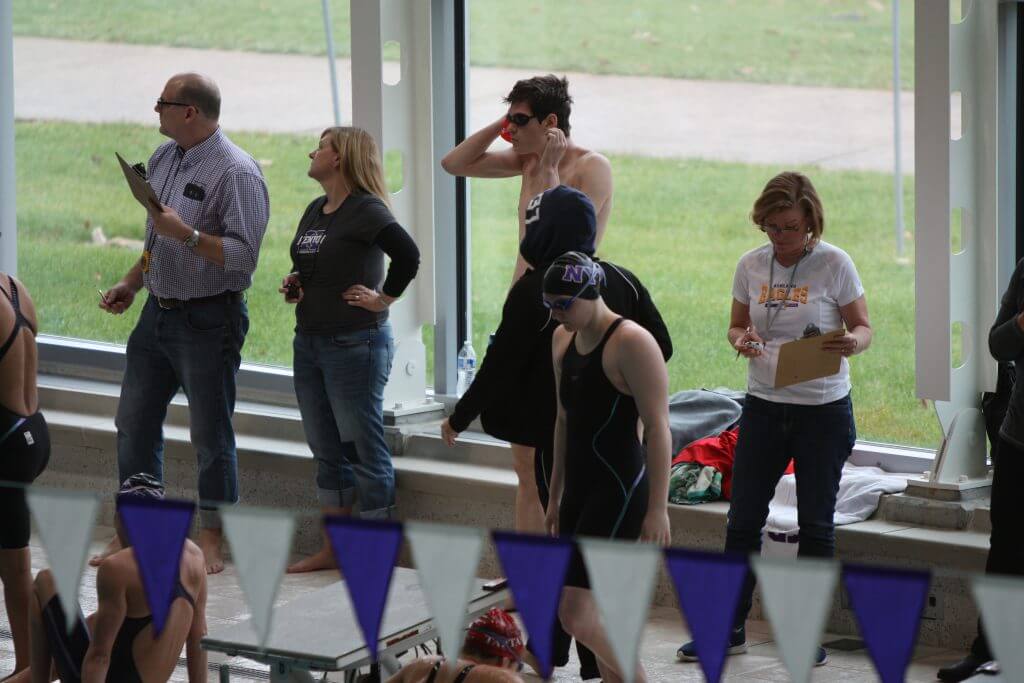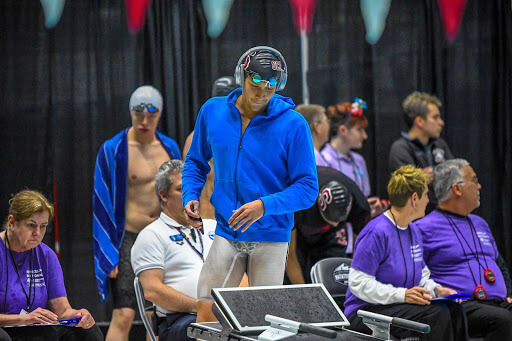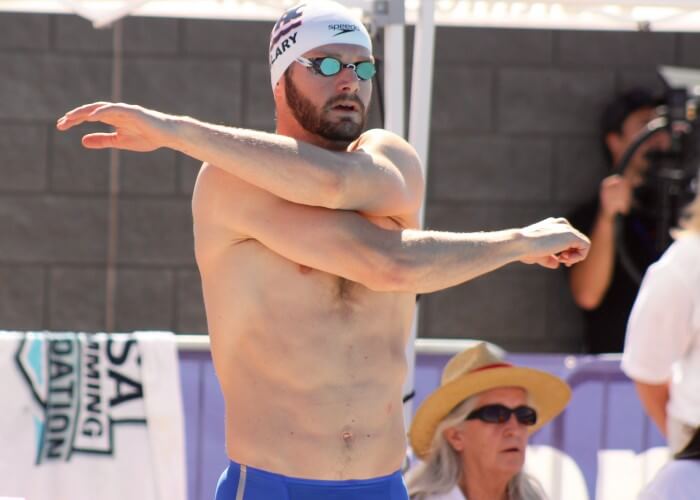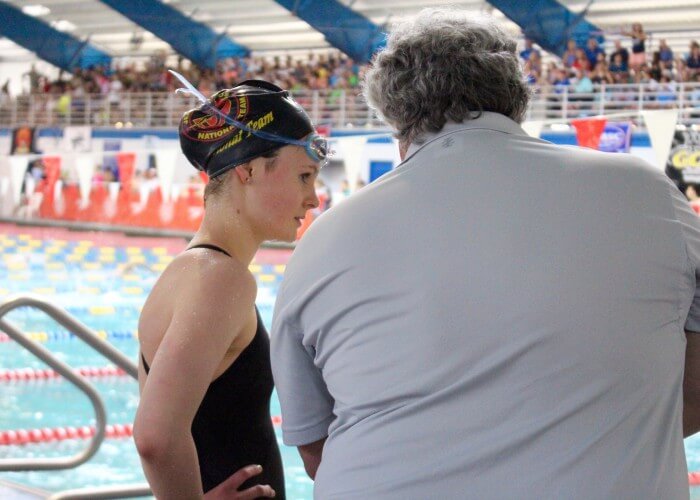Busting Your Nerves Behind the Blocks

By Haley Wen, Swimming World College Intern.
Whether you’re just starting out your swimming career or you’ve reached the highest levels in the sport, anyone can experience nerves behind the blocks. Sometimes these pre-race jitters are easy to shake off, but if they’re severe enough, they can prevent you from reaching your highest potential. Those last moments behind the blocks can make or break your race, so here are a few tips to channel these nerves into productive energy.
Reframe Your Nerves
You’re feeling so jittery you can’t sit still, so you start jumping up and down and bobbing your head. Even though the pool deck felt chilly when you exited the warm up pool, you’re sweating now. Thoughts of the upcoming event race through your head. Do these thoughts resemble anxiety, or do they evoke excitement? Both emotions cause elevated heart rate and a surge of cortisol to get your body ready for the challenge to come.

Photo Courtesy: Jonathan Gomez
A simple cognitive exercise called anxiety reappraisal can help you to reframe those pre-race jitters as something helpful to your competition rather than hurtful. Thoughts like, “I’m so nervous for this race” will turn into, “I’m so excited for this race!” You never want to be so anxious that you feel as though you can’t compete. However, a medium level of arousal framed as excitement about racing (rather than anxiety) could make a huge difference.
Just telling yourself that you’re excited won’t necessarily do the trick for your nerves though. For one, it takes practice. Secondly, it’s also possible for your arousal levels to become too high. Read on to learn how to find your optimal arousal level.
Control Your Arousal Level with Mindfulness
There are many different ways that swimmers calm down at big meets. Sometimes, standing behind the blocks can make you feel trapped, but there are still many options available to control your arousal level. One of the most effective ways to bring your emotions down when you are feeling overwhelmed is to practice mindfulness. Mindfulness is the mental practice of becoming aware of your thoughts and feelings at any given time or place, and accepting them without judgement.

Tyler Clary stretches behind the blocks at the 2016 Mesa Grand Prix. Photo Courtesy: Taylor Brien
You might be having pre-race thoughts that can lead you down a negative spiral, but using mindfulness to acknowledge those thoughts without judging them can take out the emotional reaction. Instead, mindfulness helps increase awareness of thoughts in order to choose a better path. Once you are more practiced at using mindfulness, you can use it to refocus your attention to your body rather than your nerves by stretching or deepening your breathing.
Make a Plan for Your Anxiety

Leonardo Deplano prepares for his race behind the blocks. Photo Courtesy: Peter H. Bick
You wouldn’t go into an important exam without studying, so don’t make that mistake when it comes to a race you’re worried about! If you know you’re going to have trouble controlling your nerves behind the blocks on meet day, don’t go in blind. Make a plan for how you’re going to attack the problem so that when the moment comes, you’re prepared. Then, make a back-up plan.
Keep in mind what kind of negative or destructive thoughts you usually have before your races and come up with the ways you’ll deal with them as you encounter them in the moment. If music helps you to practice mindfulness or to turn your anxiety to excitement, have a playlist of songs at the ready. Talk to a trusted person on deck to hold you accountable and help keep you in the right headspace. If you need to laugh, have the funny guy on the team talk to you before the race. Make an inside team hand signal to your teammates before stepping on the blocks. Or if you like to be alone, tune in to your headphones and find a more solitary place. Whatever works for you, do it. It may take a few tries to figure it out!
Seek Advice

A coach and swimmer make a race plan at the 2016 NCSA Juniors Championships. Photo Courtesy: Taylor Brien
At the end of the day, remember that you are not alone in your nerves. Many of your teammates are likely suffering from anxiety behind the blocks as well, and it’s likely that your coaches have too. Use this to your advantage by being open and honest with them, and ask them if they’ve found any techniques that work for them.
If your problem persists, it’s worth looking into a session or two with a sports psychologist. It doesn’t mean that there’s anything wrong with you or that you’re any weaker for seeking help – it’s just part of the process of doing everything you can to ensure you perform at your best. Olympian Jacob Pebley has credited part of his success to seeing a sports psychologist. A swimmer at any level could benefit from professional help with pre-race anxiety. Using every resource at your disposal could unlock your performance potential and increase your love for the sport.
Standing behind the blocks should be an exciting moment that fills you with anticipation, not dread. Working diligently with others to use these strategies will surely help you get a handle on your pre-race nerves.
What techniques work for you?
-All commentaries are the opinion of the author and do not necessarily reflect the views of Swimming World Magazine nor its staff.



